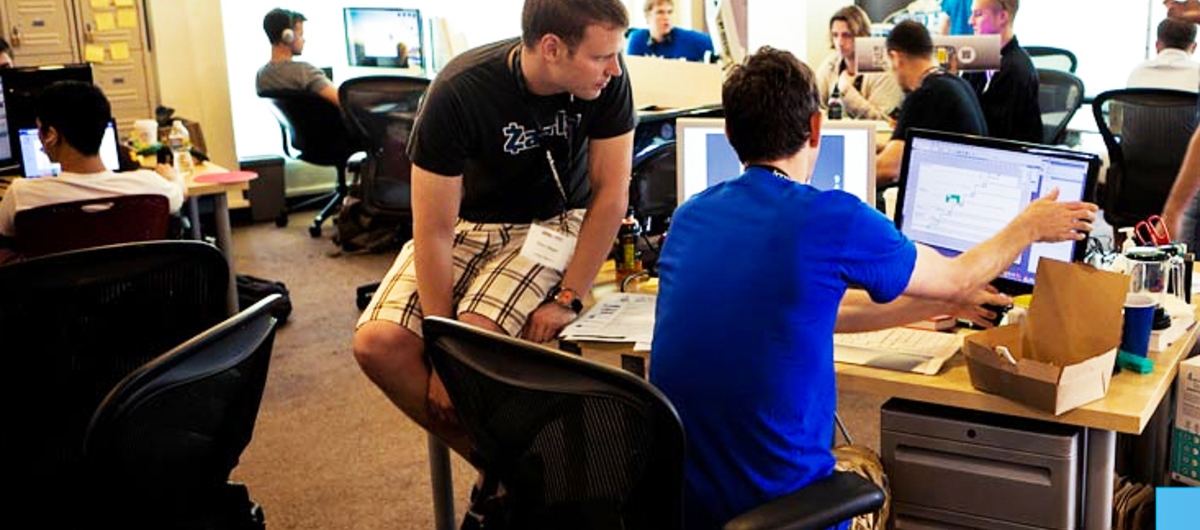A result of the economic downturn has been the increase of the contingent workforce. Big companies are employing fewer people in order to remain flexible, as well as laying off proportionately significant numbers of full time staffers. This means that now, more than ever, finding a job in a large firm is extremely difficult, especially for young university and college graduates.
For a young professional, it’s no longer enough to graduate from a degree. Landing a corporate position often necessitates two degrees, a master’s, and extensive experience to boot (with a foreign language thrown in for good measure). It’s a grim picture for young graduates with hefty education debts entering the job market, especially when the number of students completing tertiary degrees is increasing annually.
Providing opportunities in an non-hiring economy
In the midst of this downtrodden economy, startups provide an opening into a highly competitive and largely impenetrable job market. They employ handfuls of young, qualified individuals in a range of industries, as well as offer a varied, intensive and in-depth experience for interns, who fare better than finding a photocopying and/or filing job in a big company.
Developing well-rounded individuals
Anyone working for a startup would know that they, and their colleagues, are fabulous multitaskers. They juggle numerous roles and fulfill many functions beyond what is written on their business card.
Working for a startup means learning to do a number of things that are necessary for the development of a successful business, in an experimental and creative environment. In addition, by working in a small team, an employee will often have a better idea of what their colleagues are doing, and how they are doing it, seeing all work processes first hand.
It loosely (I do say loosely) follows the law of diminishing returns, which an economics teacher of mine once explained using a fashion analogy: the first pair of shoes you own will be worn every day. The second pair will be worn less, and will therefore have less wearing value. The third pair less useful still. This is because the first pair must fulfil all the necessary functions of shoe-wearing, and the same applies with employees of a company. The few people who work for them will need to complete all tasks, and so they are valuable beyond their ‘specialized’ function.
In essence, the scope of a startup employee’s work is far greater than an employee working in a single department for a large company, and so they often gain a richer and more varied professional experience: startups are contributing to the creation of well-rounded, multi-skilled individuals, and not training them to be one-trick wonders.
A healthier economy, a more varied market
Thousands of small companies, employing thousands of freelancers and qualified graduates, reduces unemployment levels significantly - with small businesses hiring around 30% of the US workforce.
Thanks to technological advancement and this increased competition between small businesses, startups are required (and are now able) to develop their products quicker, more efficiently, and cheaper, working on and perfecting their product before it hits the market. As a result, we are presented with cheaper, more efficient solutions to problems, which streamlines business and encourages market competition. Because products and ideas are tested, reworked and perfected before hitting the market, their demand is secured and time and resources are saved in the long run.
The fruits of startups, born of ideas sparked by holes in the market (and not thought up by boardrooms of existing companies) are used by individuals and companies alike, and so the vertical economy, tying consumers to big business, is reinforced.
Socially responsible endeavours
This influx of new ideas and products presents a myriad investment options for all budgets, jump starting the injection of capital back into the market and helping re-instill economic confidence.
Venture capital in particular is a term synonymous with the startup world. Without it, startups would never move beyond the 4-person payroll or develop the products which expand their business. As a result, online platforms have emerged to allow investors to support startups and their ideas, meaning that now, more than ever, investors can direct with an unprecedented exactness where their money goes. Conscious decisions can be made about which ideas and products are worth pursuing. This places the onus back on the startup to create something necessary and worthwhile, and the responsibility back on the investor, to invest in something sustainable, increasing each market player’s social and environmental responsibility.
Fuelling local economies
Startups - or rather, the people who found them - are locals. The live locally, shop locally, and use local resources. They employ local freelancers. They might rent a desk or private office in a coworking space or call a local incubator home. Startups become involved in communities and take part in events, because it’s necessary for the success of their business. These combined elements inject money, resources, and vibrancy back into local communities. Sure, the dream of most startups is to move to Silicon Valley or Google’s Campus, but startup hubs are nonetheless refuelling hundreds of cities worldwide.
The future of big business
With business giants like Google claiming that “startups fuel economic growth” and “increase innovation” it is hard to ignore the impact of the startup force on the economy. It might in fact be time to shift our thinking, disassociating startups with the ‘bad economy’ and likening them to the new one.








